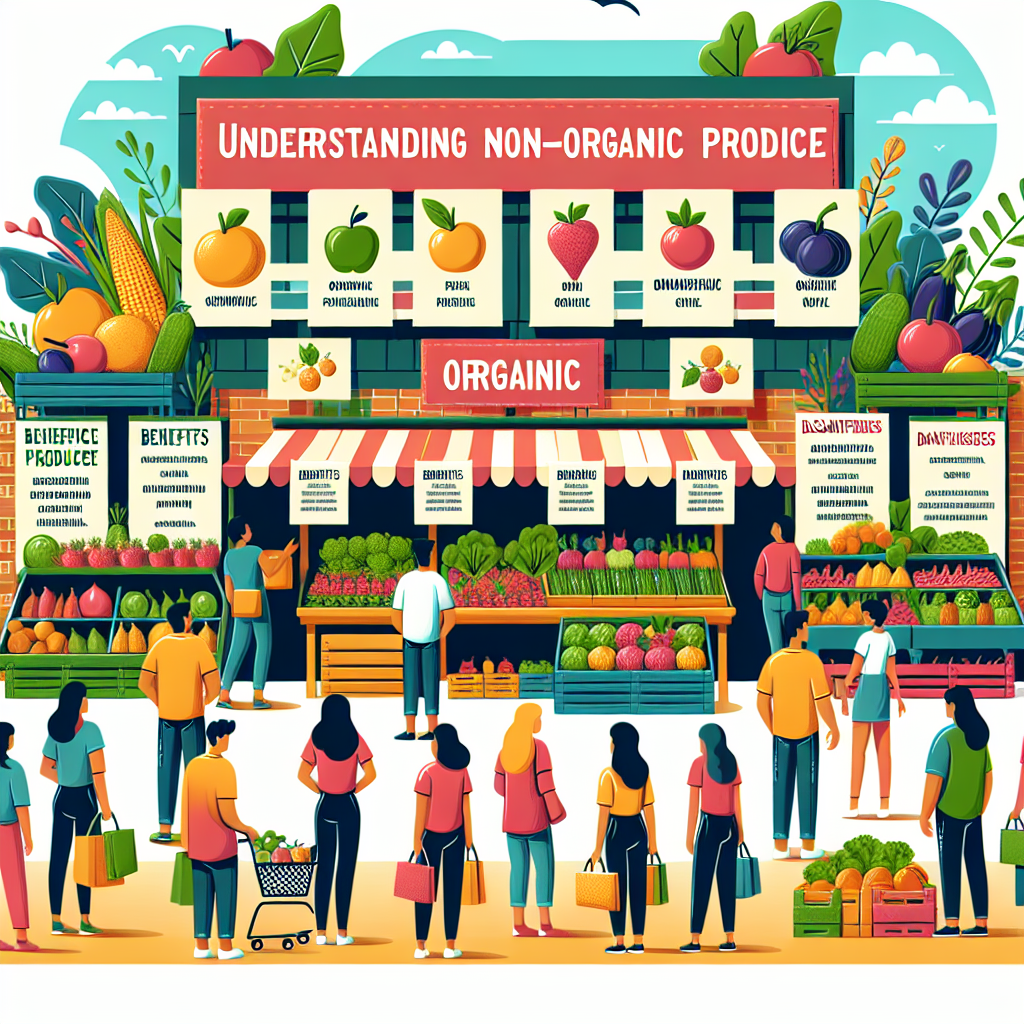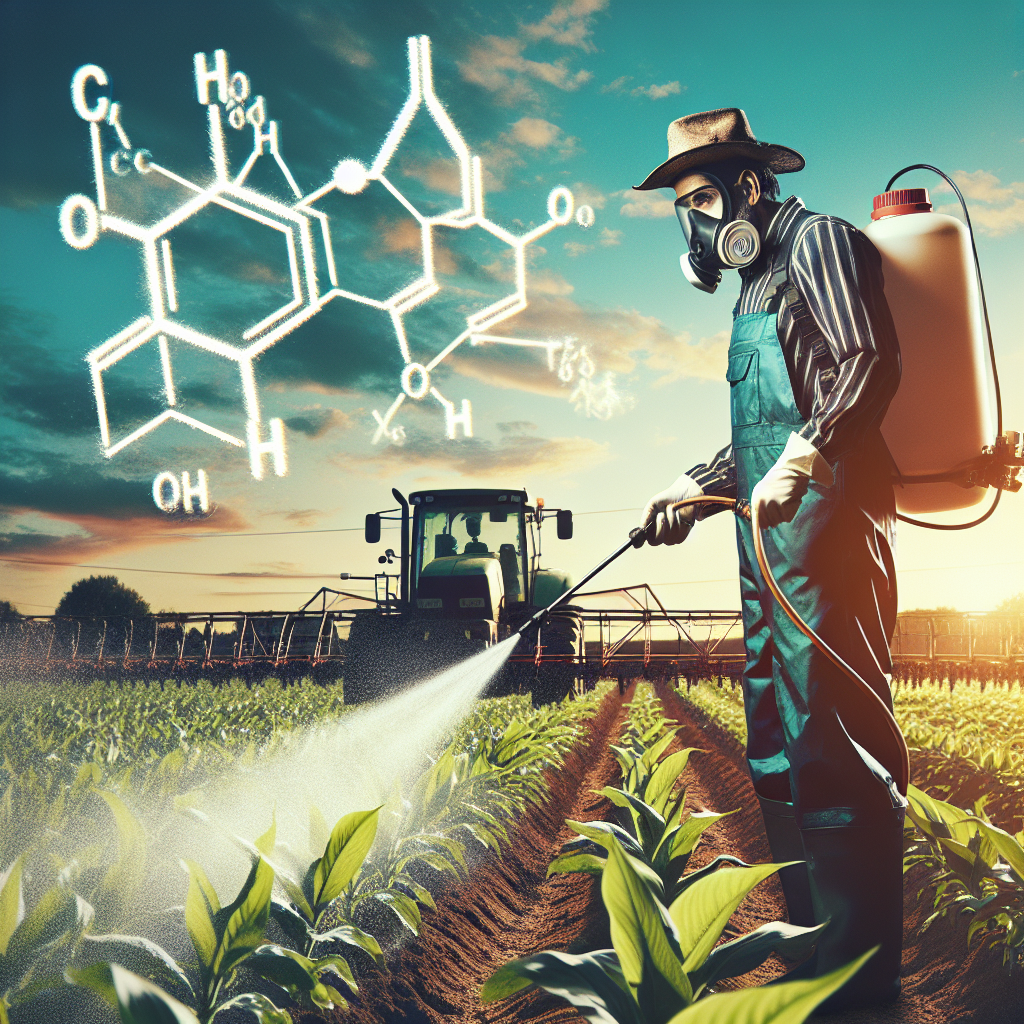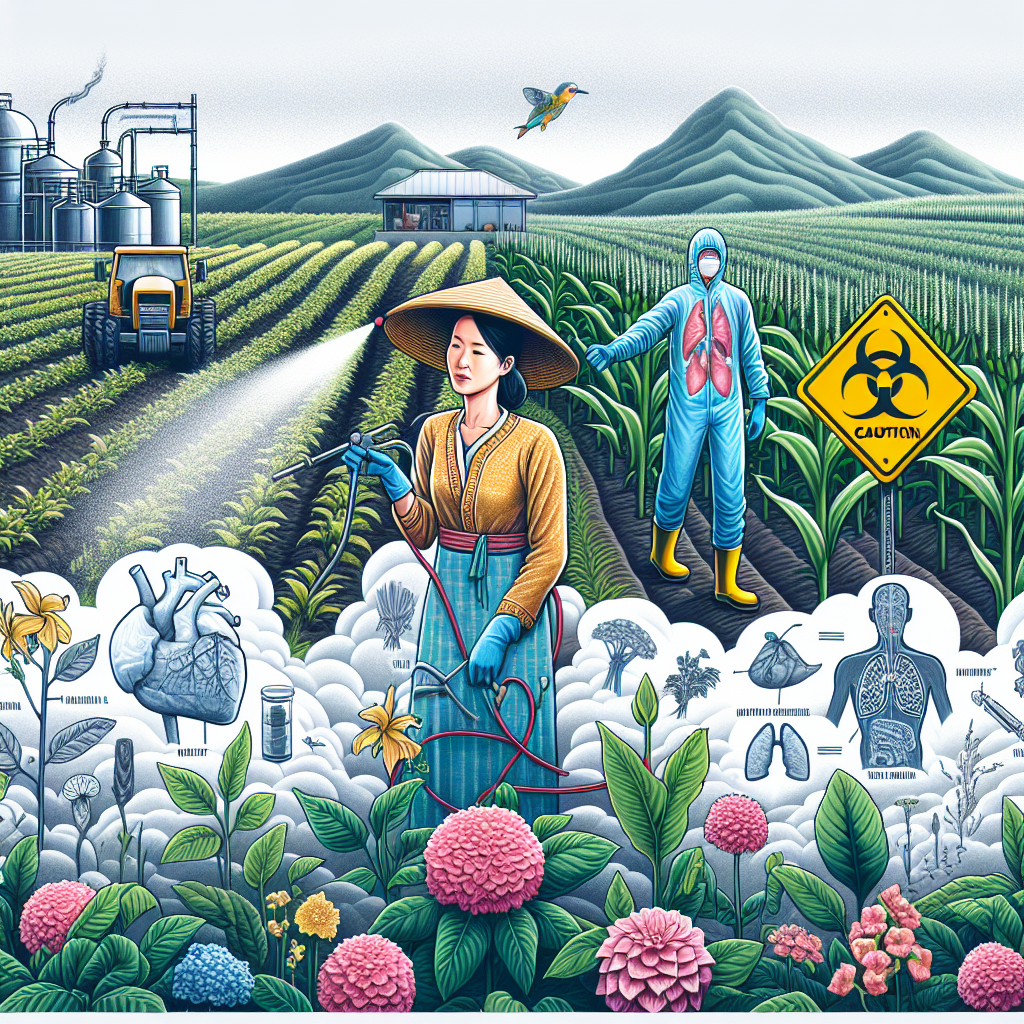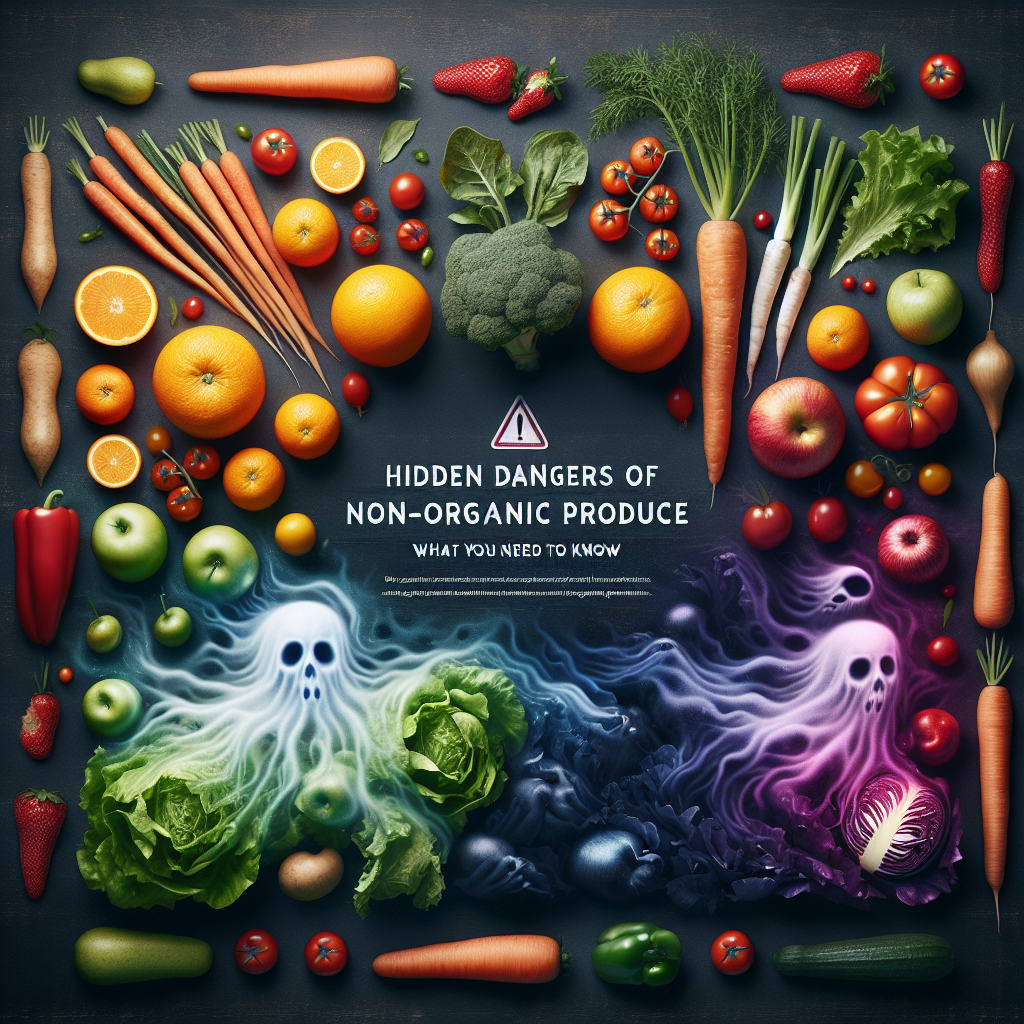The Hidden Dangers of Non-Organic Produce: What You Need to Know
In recent years, there has been a growing concern about the health implications of consuming non-organic produce. As more people become aware of what goes into their food, the question of whether to choose organic or non-organic produce has become increasingly important. This article delves into the potential health risks associated with consuming non-organic produce, such as exposure to pesticides, herbicides, and genetically modified organisms (GMOs). We will explore scientific studies and expert opinions on why choosing organic might be a safer option for your health.
Understanding Non-Organic Produce

Non-organic produce refers to fruits and vegetables that are typically grown using conventional farming methods. These methods often involve the use of synthetic pesticides, herbicides, and fertilizers to enhance growth and protect crops from pests and diseases. Additionally, some non-organic produce may be genetically modified to improve yield, resistance to pests, or to make the produce more visually appealing.
The Use of Pesticides in Non-Organic Farming

Pesticides are chemical substances used to kill or control pests that can damage crops. While pesticides are effective in protecting produce from insects and diseases, they can also pose significant health risks to humans. The residue from these chemicals can remain on fruits and vegetables even after they are washed, peeled, or cooked.
According to the Environmental Protection Agency (EPA), the long-term health effects of consuming pesticide residues from non-organic produce are still being studied. However, some studies have shown that exposure to high levels of pesticides can lead to a variety of health issues, including:
- Neurological disorders: Some pesticides are neurotoxic and can affect the nervous system, potentially leading to conditions such as Parkinson’s disease and cognitive decline.
- Hormonal disruptions: Certain pesticides act as endocrine disruptors, interfering with the normal functioning of hormones in the body. This can lead to reproductive issues and developmental problems in children.
- Carcinogenicity: Some pesticides have been classified as potential carcinogens, which means they could increase the risk of cancer.
Herbicides and Their Health Implications

Herbicides are chemicals used to kill unwanted plants or weeds. One of the most widely used herbicides is glyphosate, which is the active ingredient in products like Roundup. Glyphosate has been the subject of much debate and research due to its potential health risks.
A study published by the International Agency for Research on Cancer (IARC) in 2015 classified glyphosate as “probably carcinogenic to humans.” Although regulatory agencies such as the EPA maintain that glyphosate is not likely to be carcinogenic when used according to label directions, the controversy continues. Some studies suggest that glyphosate exposure could be linked to various health problems, including cancer, liver and kidney damage, and disruption of the gut microbiome.
Genetically Modified Organisms (GMOs)
Genetically modified organisms (GMOs) are plants whose genetic material has been altered through genetic engineering techniques. These modifications are typically made to make crops more resistant to pests, diseases, or environmental conditions. While GMOs have been touted for their potential to increase food production and reduce the need for chemical pesticides, there is still much debate about their long-term health effects.
One of the main concerns with GMOs is the potential for “gene flow,” where genetically modified traits could be transferred to non-GMO crops. Another concern is that GMOs may contain higher levels of allergens or toxins. However, the majority of scientific consensus, including statements from the World Health Organization (WHO) and the American Medical Association (AMA), states that GMOs currently on the market are safe to eat. Nonetheless, the long-term effects are still not fully understood, leading some consumers to prefer organic produce, which is non-GMO by definition.
Health Benefits of Organic Produce
Organic produce is grown without the use of synthetic pesticides, herbicides, or fertilizers. Organic farming practices rely on natural processes and substances to maintain soil fertility and control pests. As a result, organic produce typically contains lower levels of pesticide residues compared to non-organic produce.
Several studies suggest that organic produce may offer health benefits beyond the reduced exposure to pesticides and herbicides. For instance, some research indicates that organic fruits and vegetables may have higher levels of certain nutrients, such as antioxidants. A 2014 meta-analysis published in the British Journal of Nutrition found that organic crops had significantly higher levels of antioxidants and lower levels of pesticide residues and toxic heavy metals.
Furthermore, organic farming practices are generally more sustainable and environmentally friendly. They promote biodiversity, improve soil health, and reduce pollution from chemical runoff.
Expert Opinions on Organic vs. Non-Organic Produce
Experts are divided on the necessity of choosing organic produce exclusively. Some argue that the health benefits of consuming a diet rich in fruits and vegetables outweigh the potential risks associated with pesticide residues in non-organic produce. However, many health organizations, including the Environmental Working Group (EWG), recommend that consumers try to buy organic for certain “dirty dozen” fruits and vegetables that tend to have the highest pesticide residues. The EWG’s “Clean Fifteen” list, on the other hand, includes produce that typically has the lowest pesticide residues and may be safer to buy non-organic.
Conclusion
While the debate on organic versus non-organic produce continues, it is clear that there are potential health risks associated with consuming non-organic produce due to the presence of pesticides, herbicides, and GMOs. Opting for organic produce might be a safer choice for reducing exposure to these chemicals. However, it is also important to remember that a diet rich in fruits and vegetables, whether organic or not, is crucial for overall health. If buying organic is not always feasible, focusing on a varied diet and thoroughly washing produce can help mitigate some of the risks associated with non-organic produce.
Ultimately, making informed choices about what we eat is key to maintaining a healthy lifestyle. By staying informed and making conscious decisions, consumers can balance the benefits and risks of organic versus non-organic produce.
